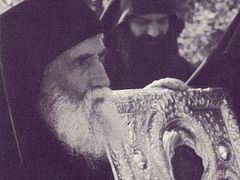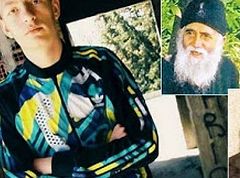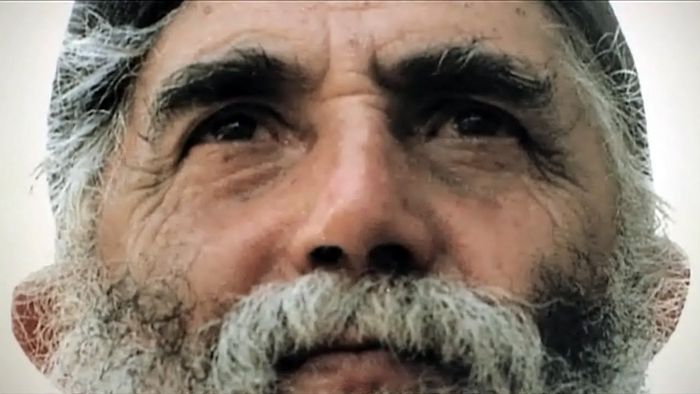 Photo: Pravlife.org
Photo: Pravlife.org
—Geronda [the Greek word for “an elder”], if somebody becomes anxious at work, what is the reason for this?
—Maybe he does not really love his job? If he has a positive attitude towards his work, then, regardless of his job, it will be like a feast day for him.
—Geronda, but if a person feels upset because he has to do some hard or dirty labor (for example, he works at a construction site, washes canteen cauldrons or does some similar kind of work), then what attitude should he develop?
—If he remembers that Christ washed His disciples’ feet (see Jn. 13:4-14), it won’t upset him any more. Christ did what He did, as if saying to us, “You should act this way.” Whatever you might do—wash cauldrons, or clean pots and pans, or dig the earth—you must be happy with it. After all, some people have to work with sewage because they cannot find any other jobs. They, poor things, have to work amidst filth and germs every day. But aren’t they human beings? Aren’t they images of God? One head of the family who worked as a sewer-cleaner achieved a high spiritual level. He eventually caught tuberculosis but, despite this, never gave up his work (though he could have done it) because he did not want others to be tormented by it like he was. This man preferred a low-level life, despised by everybody, and for that the grace of God was poured out on him abundantly.
It is not a job that makes you into a human being. I knew one ordinary docker who brought a dead man back to life. When I lived at the Iveron Skete, one day a man aged about fifty-five came to me. Having arrived late in the evening, he decided not to knock at the door and disturb the fathers; instead, he lay down outside to sleep. When the skete brethren saw him lying there, they immediately let him in and informed me about his arrival. “Why did you not ring the bell? We would have opened the door and accommodated you in a room of our guesthouse,” I asked him. “Don’t say so, father! How dare I bother the brethren?” he answered. Then I saw the radiance of his face and realized that he had achieved a high spiritual level.
After that this man told me that he had lost his father in his childhood and so he was very attached to his father-in-law after he had married. Every day after work he would first call on his in-laws’ house and only then would go home. However, the man felt worried about his father-in-law as the latter had a foul mouth. The man pleaded with his father-in-law to stop using foul language, but the latter would take no heed of what was said. Once the father-in-law fell seriously ill. He was taken to a hospital and several days later died. The docker was not with his father-in-law on the latter’s deathbed as he was unloading cargo from a ship at that time. When the hospital informed him about his father-in-law’s death, he went to the mortuary and offered up his prayer to God with aching heart, “O Lord my God! Please, bring him back to life so that he could repent! And then take him back!”
In the same instant the “dead man” opened his eyes and began moving his hands. At the sight of this miracle the mortuary staff workers ran out in terror. Our docker took his relative back home and the latter recovered completely. And he lived in repentance for five more years thereafter. “Oh father! I am so thankful to the Almighty for His inexhaustible mercies! But who am I to receive such grace of God?” the man told me.
This man was very simple-hearted. And he also had such humility that the thought that he had brought a dead man back to life never came into his mind. He was profuse in his thanks to God for the great miracle that He had performed.
Many people feel unhappy and torment themselves as they fail to achieve vain glory and acquire vain riches in this world. They don’t take into account that this vain fame and wealth will be of no use in the true life—that is, in eternity. Moreover, it will be impossible to take all these things with us to eternity. What we will take to that true eternal life is our deeds (performed by us on earth), through which we will be granted the “foreign passports” for our future great and everlasting journey.
From the book Spiritual Counsels by the St. Paisios the Athonite, vol. 4, On Family Life.

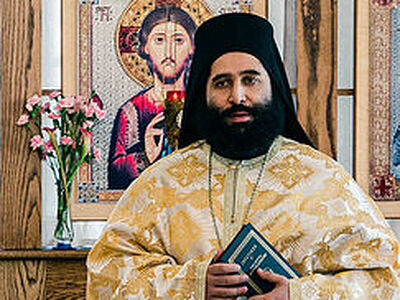
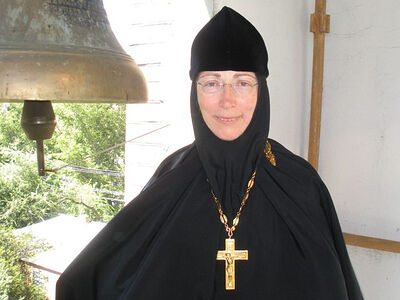
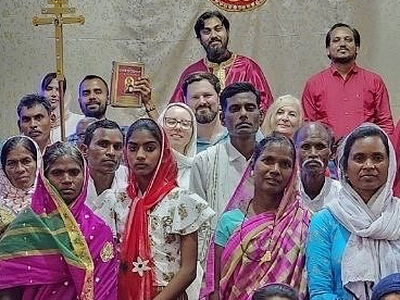


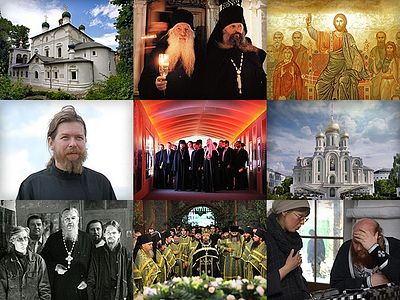

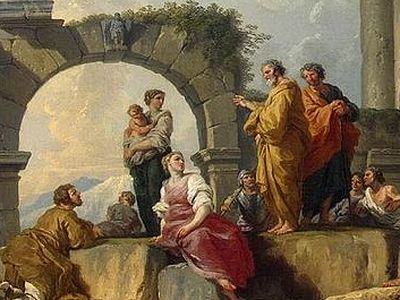 On GraceOh, how thankful we must be for all and everything—for the good and the evil; for the joy and the sorrow; and for the suffering and trials we must be grateful to God Who leads us along the path of salvation, not only by way of happiness, but above all and most of all by way of suffering.
On GraceOh, how thankful we must be for all and everything—for the good and the evil; for the joy and the sorrow; and for the suffering and trials we must be grateful to God Who leads us along the path of salvation, not only by way of happiness, but above all and most of all by way of suffering. Icon of the Mother of God “Iveron”The widow spent the whole night in vigil, praying before the icon of the Most Holy Theotokos. In the morning, according to God’s will, she took the icon to the sea and cast it upon the water. The holy icon stood upright on the waves and began to sail westward.
Icon of the Mother of God “Iveron”The widow spent the whole night in vigil, praying before the icon of the Most Holy Theotokos. In the morning, according to God’s will, she took the icon to the sea and cast it upon the water. The holy icon stood upright on the waves and began to sail westward.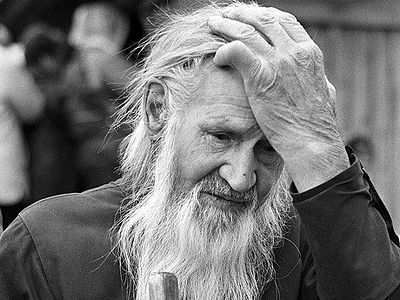 Concerning Humility of Wisdom Thus, let us also be humbled a little, and we shall be saved. If we who are infirm cannot labor, then let us try to be humbled; and I believe in the mercy of God that for the little we do with humility, even we shall be in the place of the saints who have labored much and worked for God. Even if we are infirm and cannot labor—can it be that we cannot become humble? Blessed, O brethren, is he who has humility. Great is humility! One saint who had true humility said it very well: ''Humility does not become angry at anyone and angers no one, and it considers anger completely foreign to itself.''
Concerning Humility of Wisdom Thus, let us also be humbled a little, and we shall be saved. If we who are infirm cannot labor, then let us try to be humbled; and I believe in the mercy of God that for the little we do with humility, even we shall be in the place of the saints who have labored much and worked for God. Even if we are infirm and cannot labor—can it be that we cannot become humble? Blessed, O brethren, is he who has humility. Great is humility! One saint who had true humility said it very well: ''Humility does not become angry at anyone and angers no one, and it considers anger completely foreign to itself.''  A Testimony From EternityIn the following days a great and long-expected event happened in their flat where the Heavenly Kingdom had clearly and openly manifested itself, just as the Holy Prophets Elias and Moses appeared before the apostles on Mount Tabor. A priest baptized the dying man, chrismated him, and then gave him the Holy Body and Blood of Christ and anointed him.
A Testimony From EternityIn the following days a great and long-expected event happened in their flat where the Heavenly Kingdom had clearly and openly manifested itself, just as the Holy Prophets Elias and Moses appeared before the apostles on Mount Tabor. A priest baptized the dying man, chrismated him, and then gave him the Holy Body and Blood of Christ and anointed him.